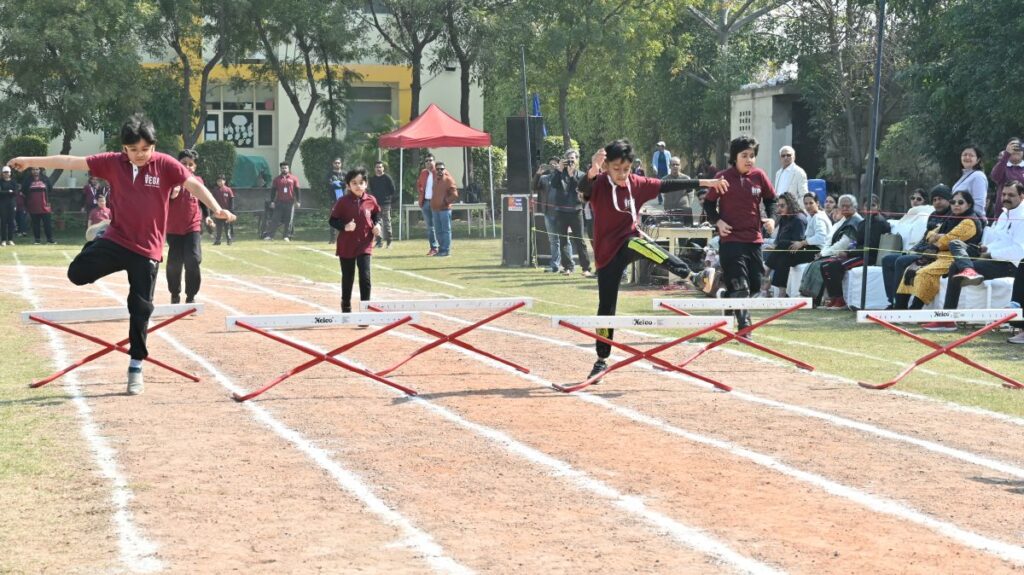Nutrition is essential for young athletes to maximize their performance, recovery, and overall development. Whether you’re a parent or coach, providing the right fuel is key to ensuring they give their best effort in every game.
The ‘one-size-fits-all’ approach to nutrition does not exist. Sport, exercise type and intensity, age, body size, objectives, and training volume all affect an individual’s nutritional requirements. In general, your calorie and carbohydrate requirements will increase with the intensity of the activity and the number of training hours.
1. Consume a Range of Foods
Eating nutritious, well-balanced meals and snacks can help you acquire the nutrition your body needs to power your game over the long term. Teen athletes require a range of nutrients from their diet in addition to the recommended daily intake of calories to continue to perform at their peak. Athletes rely on strong bones, which are built with calcium. Oxygen is transported to muscles by iron. Consume leafy green vegetables, iron-fortified cereals, and lean meat, fish, and poultry to meet your iron needs. Although athletes may require more protein than teens who are not as active, most receive enough from a balanced diet. Carbohydrates are a great fuel source. It is not a good idea for athletes to adopt low-carb diets or cut back on carbohydrates. This is due to the fact that cutting carbs can create fatigue and exhaustion, which can impair performance.
Everybody requires fat daily, but athletes need it much more. This is because active muscles require lipids for sustained energy and rapidly burn through carbohydrates. Not all fats are made equal, just like carbohydrates. Opt for healthier fats, such as the unsaturated fat present in nuts, seeds, fish, and most vegetable oils.
2. Don’t Use Supplements
Enhancing athletic performance is the promise of sports supplements. However, some may be harmful, and few are helpful.
Anabolic steroids have the potential to significantly alter a person’s hormones, leading to undesirable side effects. Depression and severe mood swings are among the mental health issues that steroids can induce.

3. Give Up Dehydration
Drinking water is just as crucial to gaining game power as eating. Sweating when exercising can quickly make you feel hot, sweaty, and exhausted, especially in hot or muggy weather. Athletes’ physical and mental performance can be impacted by even minor dehydration. There is no one-size-fits-all recommendation for water intake. A person’s age, size, degree of physical activity, and ambient temperature all affect how much liquids they require. Before, during, and after exercise, athletes should consume fluids. Avoid waiting until you become thirsty, as this indicates that your body has been dehydrated for some time.
4. Eats for the Game Day
The meals you’ve consumed throughout the previous several days and weeks will affect how well you perform on game day. Paying attention to what you eat on game day can help you perform even better. Make sure your diet is low in fat, moderate in protein, and high in carbs. Three to four hours before an activity, eat a meal. Eat a lot of carbohydrates and some protein, but limit your fat intake.
Experts advise eating within 30 minutes of strenuous activity and again two hours later following the game or event. Continue to drink plenty of water and consume a balanced diet of lean protein and carbohydrates as your body rebuilds muscle and replenishes energy stores and fluids.
5. Performance in sports and glycaemic index
Foods and beverages are ranked according to their “carbohydrate-richness” and the speed at which they impact blood sugar levels by the glycaemic index (GI). In the realm of sports nutrition, athletes are becoming more and more interested in the GI. Assuming that an athlete’s diet contains enough calories and carbohydrates overall, there is generally no evidence to indicate a meaningful effect of GI adjustment on exercise performance. Yet, it may be crucial to consider when to consume carbohydrate items with varying GIs to exercise. Although there is no evidence to support any performance benefits, it is suggested that low-GI diets could be helpful before exercise to give a more sustainable energy release.
The importance of nutrition for young athletes goes beyond just performance—it also aids in their long-term well-being and development.
Explore Vega Schools’ insights on Sports Injuries and Nutrition: Supporting Recovery Through Proper Diet. Read More.
Vega Schools offers holistic education to children in Delhi NCR and is rated among the top Schools in Gurgaon. Its modern infrastructure, facilities, and experienced teachers are a big asset to the learning & development of students, be it for Nursery, Primary or Senior children making Vega Schools the best schools in Gurgaon. For information about admission please visit the Vega Schools campuses in Sector 48 and Sector 76 Gurugram.
